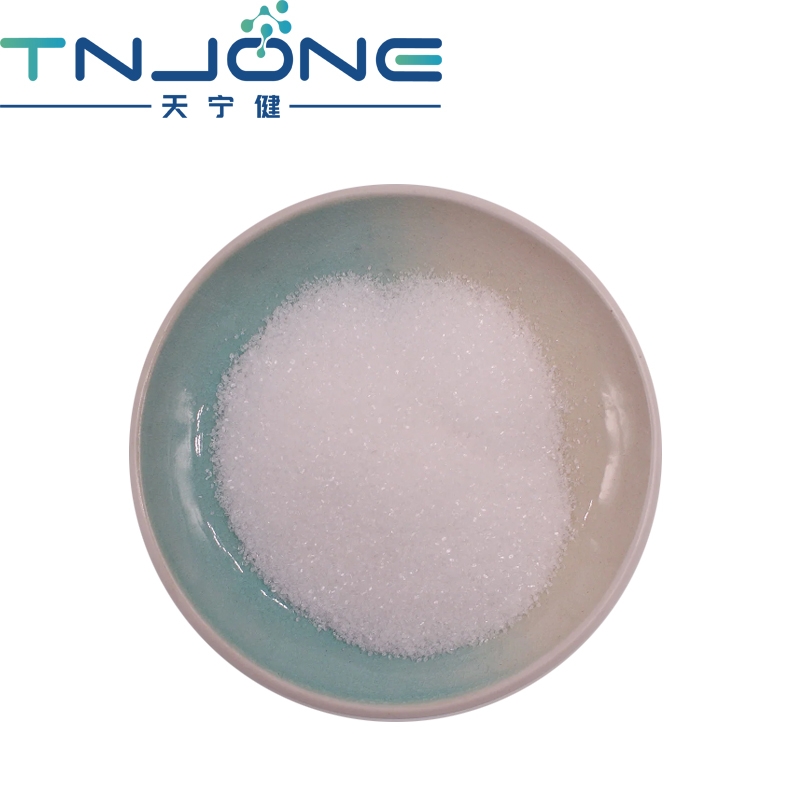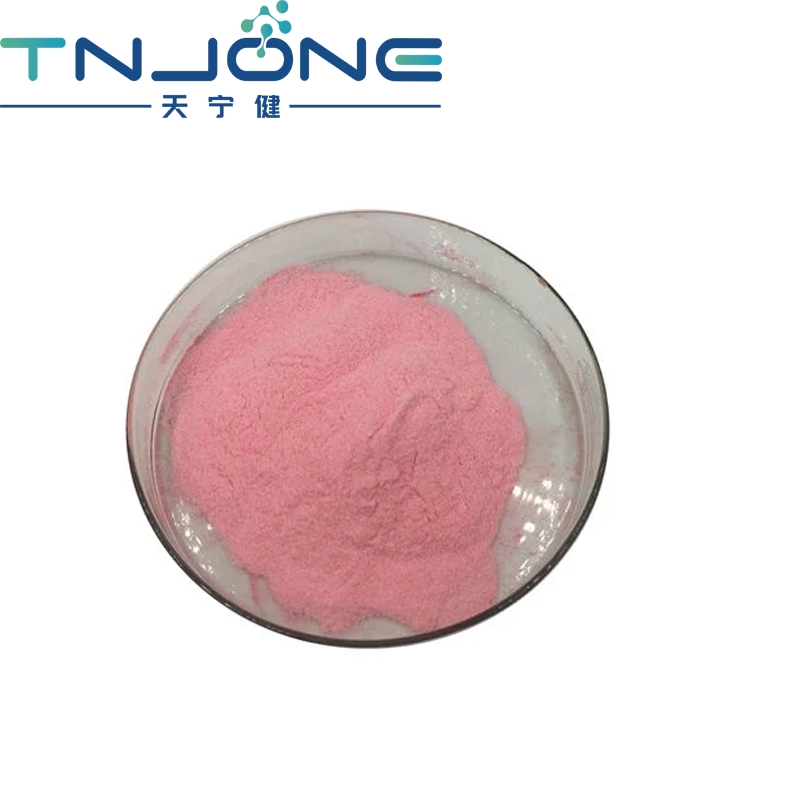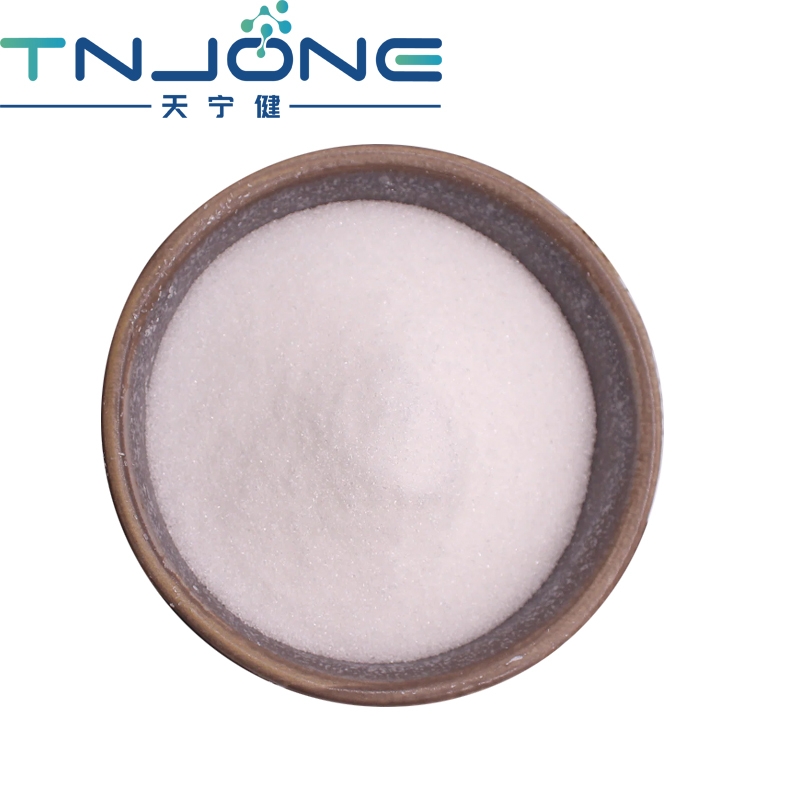-
Categories
-
Pharmaceutical Intermediates
-
Active Pharmaceutical Ingredients
-
Food Additives
- Industrial Coatings
- Agrochemicals
- Dyes and Pigments
- Surfactant
- Flavors and Fragrances
- Chemical Reagents
- Catalyst and Auxiliary
- Natural Products
- Inorganic Chemistry
-
Organic Chemistry
-
Biochemical Engineering
- Analytical Chemistry
-
Cosmetic Ingredient
- Water Treatment Chemical
-
Pharmaceutical Intermediates
Promotion
ECHEMI Mall
Wholesale
Weekly Price
Exhibition
News
-
Trade Service
In Indonesia (hereinafter referred to as Indonesia), food additives are materials added to food to affect the properties and form of food, such as for food preservation, giving color to food, preventing food rancidity or enhancing taste
.
Food additives are generally chemical substances or natural substances
that have been studied and experimented for a long time in accordance with existing scientific principles.
This issue of Food Partner Network provides a brief introduction to Indonesia's food additive management requirements for your reference
.
.
Food additives are generally chemical substances or natural substances
that have been studied and experimented for a long time in accordance with existing scientific principles.
This issue of Food Partner Network provides a brief introduction to Indonesia's food additive management requirements for your reference
.
1.
Indonesian food additive regulatory authorities
Indonesian food additive regulatory authorities
The Indonesian Food and Drug Administration (BPOM) is responsible for the safety and quality management of processed foods and food additives, responsible for the pre-market and post-market supervision of processed foods and food additives, including food additive safety assessment, formulating food additive specifications and food additive use safety limit requirements, responsible for food additive registration, issuing food additive import licenses, etc
.
.
2.
Indonesian food additive regulatory regulations
Indonesian food additive regulatory regulations
In Indonesia, food additives do not include flavor additives and processing aids
.
Food additives, processing aids and flavors and fragrances are regulated
by separate regulations.
.
Food additives, processing aids and flavors and fragrances are regulated
by separate regulations.
The requirements for the use of food additives are specified
in the Food and Drug Administration Regulation "Food Additives Regulations".
The regulatory basis for flavors, fragrances and processing aids is the Provisions on Flavor Additives and its amendments, the Regulations on Processing Aids in Processed Foods and their
amendments.
in the Food and Drug Administration Regulation "Food Additives Regulations".
The regulatory basis for flavors, fragrances and processing aids is the Provisions on Flavor Additives and its amendments, the Regulations on Processing Aids in Processed Foods and their
amendments.
Third, the functional category of Indonesian food additives
In Indonesia, the functional categories of food additives allowed are: defoamers, emulsifiers, colorants, thickeners, fillers, stabilizers, acidity regulators, etc.
, a total of 27 kinds;
, a total of 27 kinds;
The functional categories of processing aids allowed to be used are: enzyme preparations, catalysts, fining agents, microbial nutrition additives, refrigerated and frozen contact material auxiliaries, extraction solvents, lubrication and non-stick additives, etc.
A total of 16 categories
.
A total of 16 categories
.
There are 2032 fragrance compounds allowed to be added to flavors, such as L-malic acid, rose alcohol, nerolidol, etc.
; A total of 453 natural aromatic raw materials and/or fragrance preparations are allowed, such as basil, osmanthus flower, cloves, etc
.
; A total of 453 natural aromatic raw materials and/or fragrance preparations are allowed, such as basil, osmanthus flower, cloves, etc
.
Fourth, Indonesian food additives use requirements
The food additives used should only be used in accordance with the stated processing purposes, and must not be used to cover up and conceal non-conforming raw materials, spoiled food and ways
contrary to good food manufacturing practices.
Food additives not specified in the regulations need to be applied to BPOM in writing and approved before they can be used
.
contrary to good food manufacturing practices.
Food additives not specified in the regulations need to be applied to BPOM in writing and approved before they can be used
.
Among them, the "Food Additives Regulations" stipulate the requirements for the use of food additives, evaluation procedures, labeling and advertising requirements, and also stipulate the management requirements
for the production, import and circulation of food additives.
Annex I specifies the types of food additives that are allowed to be used, Annex II specifies the maximum limit requirements for the use of food additives, Annex III explains the principle of bringing in food additives, and Annex IV specifies the maximum residue limit of food additives in special foods
.
for the production, import and circulation of food additives.
Annex I specifies the types of food additives that are allowed to be used, Annex II specifies the maximum limit requirements for the use of food additives, Annex III explains the principle of bringing in food additives, and Annex IV specifies the maximum residue limit of food additives in special foods
.
5.
Indonesian food additive labeling requirements
Indonesian food additive labeling requirements
The food additive label in the ingredient list is in accordance with the regulations of the Food and Drug Administration "Indonesian Processed Food Labeling Regulations", according to the different food additive functions have different labeling requirements, generally identify the functional category, but sweeteners and other 5 categories should be marked at the same time the functional name and food additive name
.
In particular, if processed foods contain specific types of food additives, they must also be marked with prescribed warnings, such as the use of artificial sweeteners, and must be marked with prescribed warnings about people who are not recommended to use
.
.
In particular, if processed foods contain specific types of food additives, they must also be marked with prescribed warnings, such as the use of artificial sweeteners, and must be marked with prescribed warnings about people who are not recommended to use
.
If the food additive is retailed as a commodity, it is necessary to identify the functional name, type name, applicable food type and safety limit regulations on
the packaging.
the packaging.
This article is an original article of the Food Safety Compliance Division of Food Partner Network, please contact us
for reprinting.
Food Safety Compliance Division provides domestic and foreign food standards and regulations management and consulting, food safety information monitoring, analysis and early warning, product registration declaration and filing services, label review and compliance consulting, conference training services, etc.
, for details: 0535-2129301, email: vip@foodmate.
net
.







